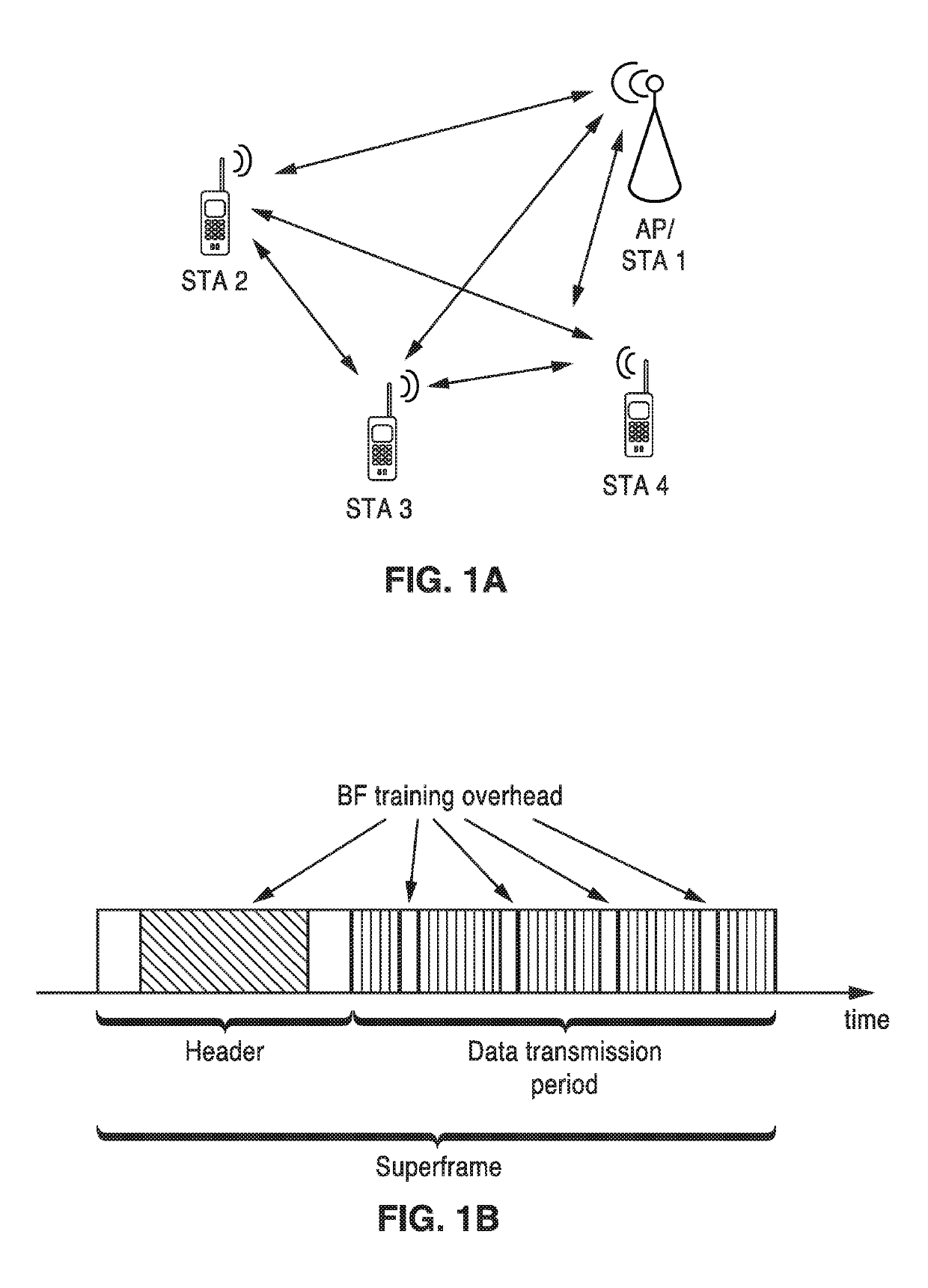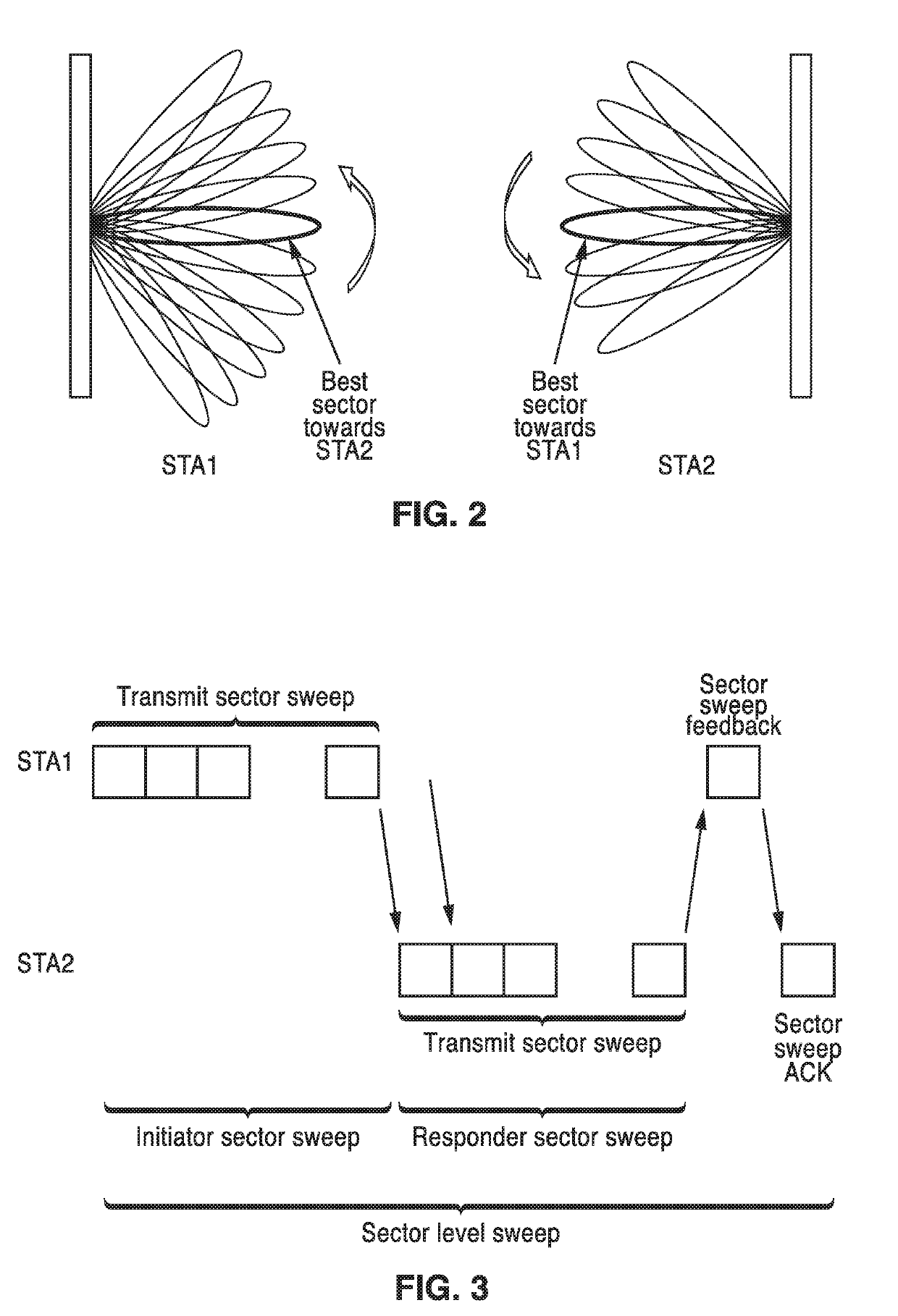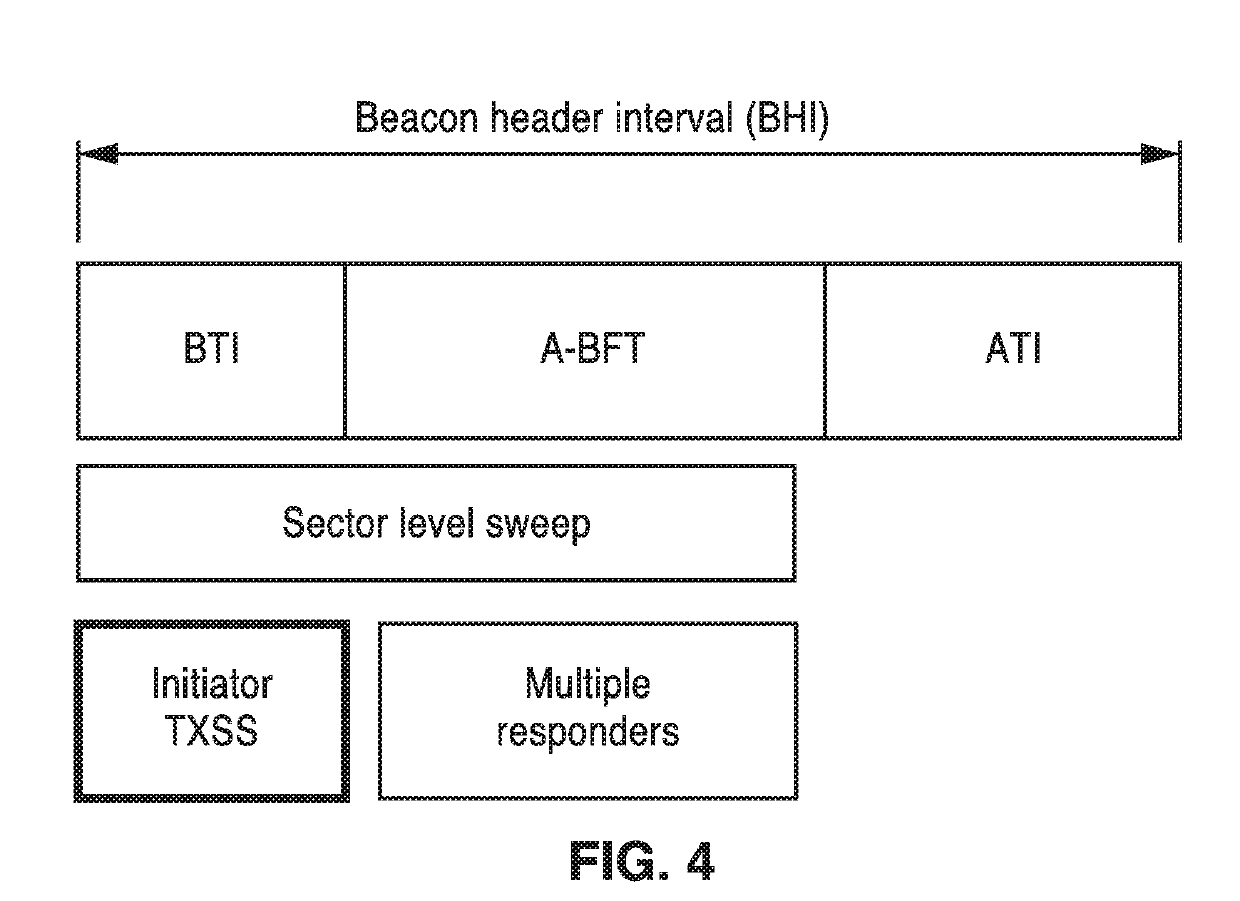Training method and system for directional transmission in wireless communication
a wireless communication and transmission system technology, applied in the field of wireless network communication, can solve the problems of high cost of bf training, large overhead, and consuming a substantial portion of communications air-time, and achieve the effect of reducing the required communications overhead and enhancing beamforming training
- Summary
- Abstract
- Description
- Claims
- Application Information
AI Technical Summary
Benefits of technology
Problems solved by technology
Method used
Image
Examples
Embodiment Construction
[0064]1. State of the Art mmWave Technology.
[0065]An example of a mmWave WLAN state-of-the-art system is the 802.11ad standard. In this standard, BF training is a bidirectional sequence of BF training frame transmissions that utilize sector sweep and provide the necessary signaling to allow each STA to determine appropriate antenna system settings for both transmission and reception.
[0066]In 802.11ad the BF training process can be performed in phases. (a) A sector level sweep phase performs directional transmission coupled with low gain (quasi-omni) reception for link acquisition. (b) A refinement stage is performed that adds receive gain and final adjustment for combined transmit and receive. (c) Tracking is performed during data transmission to adjust for channel changes. It should be appreciated that the present disclosure primarily focuses on enhancements to the sector level sweep (SLS) mandatory phase of the 802.11ad standard.
[0067]1.1 Sector Level Sweep (SLS) Concept of BF Tra...
PUM
 Login to View More
Login to View More Abstract
Description
Claims
Application Information
 Login to View More
Login to View More - R&D
- Intellectual Property
- Life Sciences
- Materials
- Tech Scout
- Unparalleled Data Quality
- Higher Quality Content
- 60% Fewer Hallucinations
Browse by: Latest US Patents, China's latest patents, Technical Efficacy Thesaurus, Application Domain, Technology Topic, Popular Technical Reports.
© 2025 PatSnap. All rights reserved.Legal|Privacy policy|Modern Slavery Act Transparency Statement|Sitemap|About US| Contact US: help@patsnap.com



